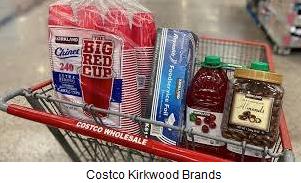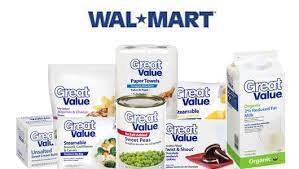 According to a survey conducted by market research company Numerator, private label products account for 17.4 percent of grocery sales compared to branded products at 82.6 percent. Private label sales in club stores rose to 32.1 percent of sales in 2021 compared to online at 20 percent; supermarkets, 18.6 percent; dollar stores at 10 percent and drug stores, 5 percent.
According to a survey conducted by market research company Numerator, private label products account for 17.4 percent of grocery sales compared to branded products at 82.6 percent. Private label sales in club stores rose to 32.1 percent of sales in 2021 compared to online at 20 percent; supermarkets, 18.6 percent; dollar stores at 10 percent and drug stores, 5 percent.
Private label share is lowest among households with limited income. In contrast, high-income consumers have a more favorable perception of private-label products. More than half (57 percent) in the high-income category considered private label products as ‘excellent value’ compared to 55 percent of middle income and 53 percent of low-income shoppers.
 Numerator determined that price is becoming more important than brand identity for a wide spectrum of consumers with enigmatically, high-income consumers buying private labels to save money.
Numerator determined that price is becoming more important than brand identity for a wide spectrum of consumers with enigmatically, high-income consumers buying private labels to save money.
The leading private label brands include:
- Great Value (73 percent of U.S. consumers)
- Equate (51 percent)
- Marketside (44 percent)
- Freshness Guaranteed (40 percent)
- Dollar Tree (33 percent)
The proportionally larger share of grocery sales enjoyed by Walmart obviously influenced consumption of their private brands led by Great Value. Aldi, Target and Amazon have maintained high growth rates for their private label brands.